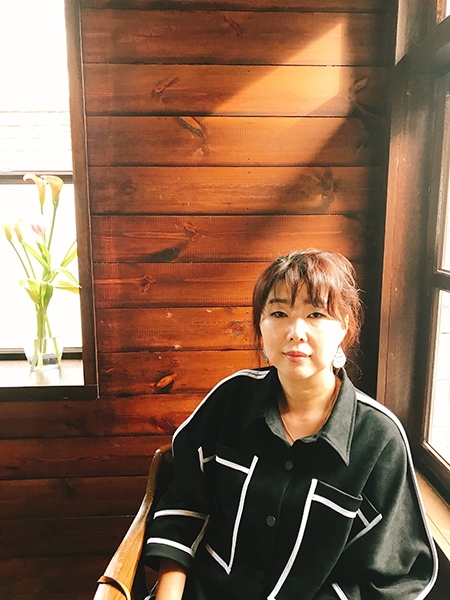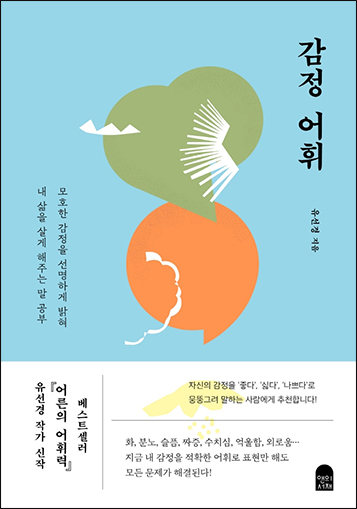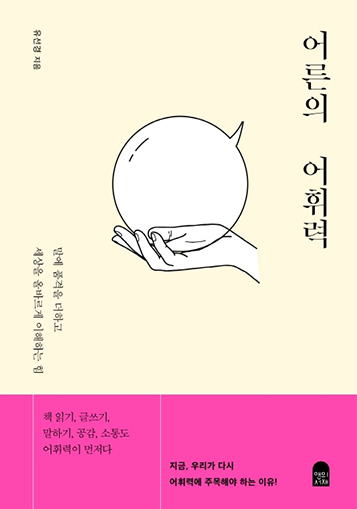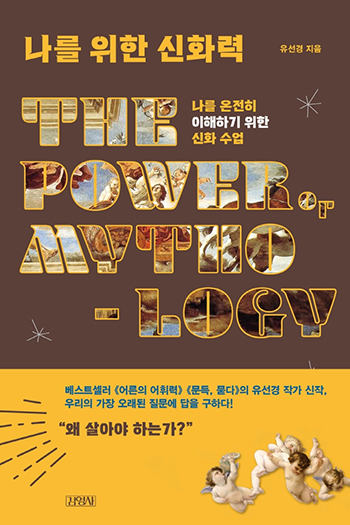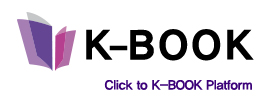|
Korean Authors
Writer Yoo Sun-Kyong Facing Your Emotions and Naming Them
2022.08.01
We express our feelings through writings in the form of journals or texts. While writing, we think of words to describe the emotion with the question, “How am I feeling now?” and organize our thoughts. Words like angry, sad, or happy are used to express emotions. Still, we need more diverse expressions and phrases to describe the feeling in detail. Yoo Sun-Kyong, an author who is loved for her best sellers Emotional Vocabulary (Annes’ Library) and Vocabulary of Adults (Annes’ Library), focuses on putting names and expressions on feelings and lets readers face the feelings they disregard. So, let us take time to listen to her stories and see what our emotions tell us.

We are happy to have the writer Yoo Sun-Kyong in our webzine. Please introduce yourself to our readers.
Hello, readers interested in Korean publications. I am Yoo Sun-Kyong. I write essays and books on humanities and also work as a radio program script writer. I enjoy imagining, fantasizing, and being deep in thoughts as much as I love reading and writing.

You recently released a book named Emotional Vocabulary. The book became a hot topic in the industry and was ranked as one of the best sellers. This shows how much Korean readers are interested in your books. Please tell us how you feel and introduce your book to readers in other countries.
To summarize the feeling as a writer who released a book after struggling for about a year, I would say it was ambivalent. I was glad and proud to have a result in my hand, but it also felt very hollow and lonely at the same time. It feels complicated for a month or two after the release. I thought I was the only one who felt that way, but it turned out that writers around me felt similarly after publishing their books. I think the gap in writers’ hearts is filled by readers. Thanks to readers who responded warmly to my works, I could continue my work as a writer.
While suppressing and denying feelings,

Your previous work, Vocabulary of Adults, and the recent one, Emotional Vocabulary, are all under the theme of vocabulary. Many have seen books emphasizing the power of speech or thinking. Still, barely any books highlighted the importance of wording. What meaning do words have in our lives?
The importance of words is growing stronger as communities are fragmented and individualized quickly. For example, when people lived and worked within a few kilometers range of their birthplace, people could understand each other with only demonstrative pronouns like this and that. People’s interpretation of a single word was no different. This is because the world was small, and people shared the same experiences. However, we can no longer say that the speaker’s intention and the listener’s interpretation are the same. Thus, using an accurate term with minimal room for interpretation helps reduce miscommunications among people.
Emotional Vocabulary and Vocabulary of Adults

For 30 years or more, you continued writing every day as a script writer for a radio program. It seems like writing every single day would not be easy. In what mindset do you write, and where do you get inspired?
Most people work every day, and it is not that different for me to write every day. I write around eight months a year for a book. During that period, my working hours sometimes far exceed those of a person working in a company.

There might be similarities and differences between writing daily as a radio program script writer and writing daily to publish books. What would be the similarities and differences?
There are more differences than similarities, like the difference between a poem and a novel. I write speech as a radio program script writer, and I write literature as a writer of a book. Colloquial and literary style is one different factor to count. When I write a script for a radio program, the content is what I want to deliver. Still, words and sentences in scripts are meant to help the host speak comfortably. The host’s pace, tone, speed, and oral pronunciation must be considered to make the script comfortable and easy to understand for listeners. Before all else, radio scripts have time limits. A script should never exceed three minutes, regardless of the content’s value. Especially, opening comments that signal the program’s start are expected to end within 1 minute 30 seconds. On the contrary, books are relatively less restricted than radio scripts. A general length book would amount to 1,000 pages on squared manuscript paper, meaning the writer must carry on with the task of writing with a long breath. Suppose writing on a topic cannot be continued. In that case, it is not worth the effort, even if the subject is considered a quality idea. The most significant difference is that radio scripts cease to exist after the broadcast. On the other hand, books are left on readers’ bookshelves or in libraries. The common factor is that both types of writing aim to reach someone.
The beautiful thing about books is that they connect people.

We believe that there were some impressive readers throughout your career. Can you share an episode related to them?
Recently, I recommended a book through a phone interview with the host Lee Geum-Hee on the YouTube channel My Geumhee (마이 금희). She lost her father recently, and she was deep in her loss. So, I recommended a book to console her heart, Soul Photo, written by American photographer Chris Orwig. A fan who became my supporter after reading Vocabulary of Adults watched the episode and gifted the book I recommended to Lee with a letter. The fan ran a small bookstore in her town. Lee was touched by my fan’s action and introduced the bookstore on her YouTube channel. Likewise, it was beautiful to see that my book connected two different people.

You have written a total of nine books including Emotional Vocabulary. Is there a book you would like to recommend to readers in other countries? If yes, please share.
I would recommend The Power of Mythology (Gimm-Young Publishers, Inc.) to readers overseas. I wrote this after seeing Vocabulary of Adults become a best seller. The Power of Mythology was published last year. I found answers to questions one would think once in a lifetime from Eastern and Western mythologies. Examples of such questions are “Why do I have to live?” “Is life worth living?” “Why is the world always like this?” and “What is death?” The book introduces mythologies, suggests topics on the world and life, and reorganizes myths and philosophical ideas in line with the issues. Sixty-five masterpieces contained as illustrations make it fun for readers to read through and help them understand.
The Power of Mythology

It has not been long since your new book was published, but what would you like to deliver in your next book? We want to know the next plan built by the writer who writes on a daily basis.
My next book will be released by the end of next year. Many publishers expressed interest in a notebook I kept from my middle school years until now. The next book will introduce sentences from the notebook that fit the era, and I will add comments to those sentences. In the long run, I dream of writing fiction.

Any last comments for our readers?
Though reading is on the decline internationally, the Korean publishing industry releases diverse forms and genres of books. I tend not to refer to best seller rankings when choosing books to read. When you search for newly published books from each genre, you can figure out the social trend and find books that fill your curiosity or meet your taste. Dear book lovers, I have no choice but to love you.
#Yoo Sun-Kyong#Emotional Vocabulary#Vocabulary of Adults #Emotions |
Pre Megazine
-

Jakkajungsin Publishing Co.
VOL.69
2024.04 -

Writer Yun Jung-Eun
VOL.69
2024.04 -

Jumping Books Publishing House
VOL.68
2024.03 -

Writer Kim Hwa-Jin
VOL.68
2024.03 -

Publisher Hyohyung
VOL.67
2024.02 -

Writer Minha
VOL.67
2024.02 -

Almond Publishing
VOL.66
2024.01 -

Writer Kwon Jung-Min
VOL.66
2024.01 -

Hakgojae Publishers
VOL.65
2023.12 -

Writer Kim Hye-Jung
VOL.65
2023.12 -

Eidos Publishing House
VOL.64
2023.11 -

Writer Hwang In-Chan
VOL.64
2023.11 -

Munhakdongne
VOL.63
2023.10 -

Writer Chang Kang-myoung
VOL.63
2023.10 -

Happywell Publishing
VOL.62
2023.09 -

Writer Baik Soulinne
VOL.62
2023.09 -

Dasan Contents Group (Dasan Books)
VOL.61
2023.08 -

Writer Lim Kyoung-Sun
VOL.61
2023.08 -

SpringSunshine Publishing Co.
VOL.60
2023.07 -

Writer Lee Kyung-Hye
VOL.60
2023.07 -

Human Cube
VOL.59
2023.06 -

Doctor Jeong Jae-Seung
VOL.59
2023.06 -

Anonbooks
VOL.58
2023.05 -

Writer Son Bo-Mi
VOL.58
2023.05 -

Namhaebomnal
VOL.57
2023.04 -

Writer Kim Bo-Young
VOL.57
2023.04 -

Hugo Publishing
VOL.56
2023.03 -

Writer Cho Kwang-Hee
VOL.56
2023.03 -

Balgeunmirae Publishing Co.
VOL.55
2023.02 -

Writer Lee Byung-Ryul
VOL.55
2023.02 -

Wisdom House, Inc
VOL.54
2023.01 -

Writer Jeong Jia
VOL.54
2023.01 -

Humanitas
VOL.53
2022.12 -

Writer Kim Yeon-Su
VOL.53
2022.12 -

Songsongbooks
VOL.52
2022.11 -

Writer Eun Hee-Kyung
VOL.52
2022.11 -

Bombom Publishing Co.
VOL.51
2022.10 -

Writer Jiwon Yu
VOL.51
2022.10 -

Hangilsa Publishing Co., Ltd.
VOL.50
2022.09 -

Writer Kim Won-Young
VOL.50
2022.09 -

Moksu Publishing Company
VOL.49
2022.08 -

Writer Yoo Sun-Kyong
VOL.49
2022.08 -

Next Wave
VOL.48
2022.07 -

Writer Park Sang-Young
VOL.48
2022.07 -

A Thousand Hopes
VOL.47
2022.06 -

Writer Bora Chung
VOL.47
2022.06 -

Woongjin ThinkBig
VOL.46
2022.05 -

Dr. Oh Eun-Young
VOL.46
2022.05 -

JECHEOLSO Publishing House
VOL.45
2022.04 -

Writer Jang Ryu-Jin
VOL.45
2022.04 -

Changbi Publishers
VOL.44
2022.03 -

Writer Kim Ho-Yeon
VOL.44
2022.03 -

Mati Books
VOL.43
2022.02 -

Writer Lee Kkoch-Nim
VOL.43
2022.02 -

Picturebook Gongjackso
VOL.42
2022.01 -

Writer Kim Sang-Wook
VOL.42
2022.01 -

Writer So-yeon Park
VOL.42
2022.01 -

Writer Yoo Eun sil
VOL.42
2022.01 -

Kungree Press
VOL.41
2021.12 -

Writer Kim Lily
VOL.41
2021.12 -

Writer Park Yeon-jun
VOL.41
2021.12 -

Writer Yi Hyeon
VOL.41
2021.12 -

A deeper world told through picture books 'Iyagikot Publishing (Story Flower)'
VOL.12
2019.06 -

Author Jeon Min-hee
VOL.12
2019.06 -

Illustrator Kim Hwan-Young
VOL.13
2019.07 -

Travelers sailing through the sea of knowledge - 'Across Publishing Group Inc.'
VOL.13
2019.07 -

Genre Novel Publisher 'Arzak Livres'
VOL.14
2019.08 -

Author Lee Yong-han
VOL.14
2019.08 -

Wookwan Sunim
VOL.15
2019.09 -

East-Asia Publishing
VOL.15
2019.09 -

Author Jo Jung-rae
VOL.16
2019.10 -

EunHaeng NaMu Publishing
VOL.16
2019.10 -

Writer Heo Kyo bum
VOL.40
2021.11 -

Writer Kim So-Young
VOL.40
2021.11 -

Author-illustrator Kim Sang Keun
VOL.40
2021.11 -

ACHIMDAL BOOKS
VOL.40
2021.11 -

Author Kang Gyeong-su
VOL.17
2019.11 -

Moonji Publishing Belongs to the Literary Community
VOL.17
2019.11 -

Author Kim Yun-jeong
VOL.18
2019.12 -

I-Seum
VOL.18
2019.12 -

Kim Cho-Yeop
VOL.19
2020.02 -

Creating a window into the future with books
VOL.19
2020.02 -

Author Serang Chung
VOL.20
2020.03 -

Hey Uhm
VOL.20
2020.03 -

Writer Lim Hong-Tek
VOL.21
2020.04 -

BIR
VOL.21
2020.04 -

Writer Song Mikyoung
VOL.39
2021.10 -

Author-illustrator Kim Dong Su
VOL.39
2021.10 -

Writer Lee Seula
VOL.39
2021.10 -

Tabi Books
VOL.39
2021.10 -

Writer Kim Soo-hyun
VOL.38
2021.09 -

Author-illustrator Lee Myoung Ae
VOL.38
2021.09 -

Writer Hwang Sunmi
VOL.38
2021.09 -

Kidari Publishing Co.
VOL.38
2021.09 -

Writer Sohn Won-Pyung
VOL.22
2020.05 -

Woods of Mind's Books
VOL.22
2020.05 -

Writer Heungeul
VOL.23
2020.06 -

Gloyeon
VOL.23
2020.06 -

Maumsanchaek
VOL.24
2020.07 -

Winners of the 2021 Bologna Ragazzi Award
VOL.37
2021.08 -

Picture book artist Lee Suzy
VOL.37
2021.08 -

Author-illustrator Yi Gee Eun
VOL.37
2021.08 -

Hubble
VOL.37
2021.08 -

Writer Baek Se-Hee
VOL.25
2020.08 -

Bearbooks Inc.
VOL.25
2020.08 -

Author Baek Hee-Na
VOL.26
2020.09 -

Yuksabipyoungsa
VOL.26
2020.09 -

Writer Kang Hwa-Gil
VOL.27
2020.10 -

Kinderland (Bandal)
VOL.27
2020.10 -

Writer Ha wann
VOL.36
2021.07 -

Author-illustrator Myung Soojung
VOL.36
2021.07 -

Writer Jung Yeo-Wool
VOL.36
2021.07 -

Publisher EcoLivres
VOL.36
2021.07 -

Writer Lee Geumi
VOL.28
2020.11 -

Sakyejul
VOL.28
2020.11 -

Writer Kim Keum-Hee
VOL.29
2020.12 -

Geulhangari
VOL.29
2020.12 -

Writer Cheon Seon-Ran
VOL.30
2021.01 -

Hyang Publishing House
VOL.30
2021.01 -

Writer Lee Hee-Young
VOL.31
2021.02 -

Sanzini
VOL.31
2021.02 -

Publisher Prunsoop
VOL.32
2021.03 -

Writer Sim Yun-Kyung
VOL.32
2021.03 -

Hanbit Media
VOL.35
2021.06 -

Hyeonamsa
VOL.33
2021.04 -

Author-illustrator Noh Inkyung
VOL.33
2021.04 -

Writer Cho Won-Jae
VOL.35
2021.06 -

Writer Kim Jung-Mi
VOL.34
2021.05 -

Safehouse Inc.
VOL.34
2021.05


